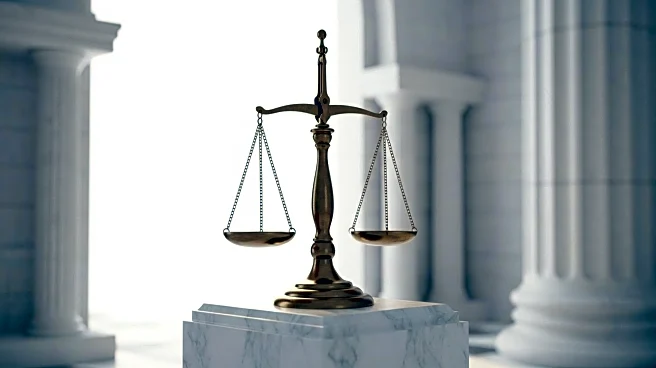What is the story about?
What's Happening?
The U.S. Supreme Court is set to announce whether it will review a case involving alleged racial bias in jury selection in Mississippi. The case centers on Terry Pitchford, a Black man on death row, who was convicted for his role in an armed robbery that resulted in a fatal shooting. The prosecutor, Doug Evans, who has a history of racial bias in jury selection, used peremptory strikes to remove Black jurors during Pitchford's trial. A federal district court found that the trial judge failed to properly apply the Batson test, which is designed to prevent racial discrimination in jury selection. However, the Fifth Circuit Court reversed this decision, prompting Pitchford's attorneys to seek Supreme Court intervention.
Why It's Important?
This case highlights ongoing concerns about racial discrimination in the U.S. legal system, particularly in jury selection. The outcome could have significant implications for how courts handle claims of racial bias, potentially affecting future cases across the country. If the Supreme Court decides to hear the case, it could lead to stricter enforcement of anti-discrimination measures in jury selection, impacting defendants' rights and the integrity of the judicial process. The decision may also influence public perception of racial equity in the legal system, especially in capital cases.
What's Next?
The Supreme Court's decision on whether to take up the case is expected soon. If the court agrees to hear it, the case could set a precedent for how racial bias claims are evaluated in jury selection. Legal experts and civil rights advocates are closely watching the case, as it could lead to changes in how courts across the U.S. apply the Batson test. The decision may also prompt legislative or policy changes aimed at reducing racial bias in the judicial system.
Beyond the Headlines
The case underscores broader issues of racial inequality in the U.S. justice system, particularly in states with a history of racial discrimination. It raises ethical questions about the fairness of capital punishment and the role of race in legal proceedings. The case also highlights the challenges defendants face in proving racial bias, given the high standards set by the Batson test. Long-term, the case could influence public discourse on racial justice and prompt reforms in jury selection processes.


















